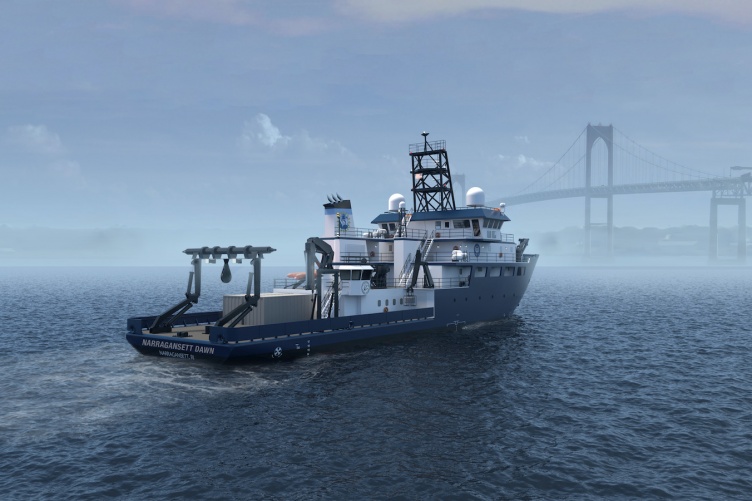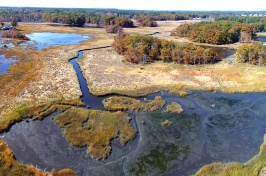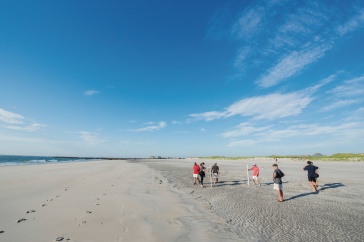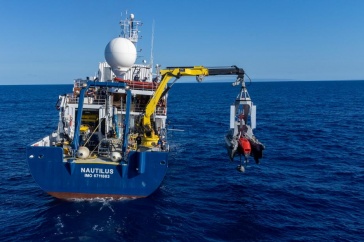
AN ARTIST'S RENDERING OF THE NEW RESEARCH VESSEL R/V Narragansett Dawn TO BE JOINTLY OPERATED BY UNH. (IMAGE: GLOSTEN ASSOCIATES)
A new state-of-the-art ocean-going vessel that will improve UNH scientists’ capability to conduct coastal and deep-sea research has been given the name Narragansett Dawn.
Members of the public submitted 141 potential names as part of a competition that began last fall. Larry Mayer, director of the UNH Center for Coastal and Ocean Mapping, was among the 18 people who served on the name selection committee. Narragansett Dawn was chosen in honor of the Indigenous Narragansett people who inhabit Rhode Island, where the vessel will be ported when not at sea.
“It was a really eye-opening experience to be part of the naming committee,” Mayer says. “We tried to avoid names that perpetuated the spirit of colonization, and instead we focused on names that are respectful to and inclusive of Indigenous peoples. Many of the Indigenous people of the Northeast are "people of the dawn" as they are among the first to see the sun come up over the ocean each day. The name Narragansett Dawn struck all the right chords.”
The forthcoming vessel, owned by the National Science Foundation, will be operated by the University of Rhode Island as part of the East Coast Oceanographic Consortium (ECOC), which includes UNH and the Woods Hole Oceanographic Institution as primary members along with 16 associate members. Narragansett Dawn will be one of only three ships of its kind in the nation and will include improved science labs, more work space, state-of-the-art technologies and more comfortable berthing, according to URI.
“We’re very proud that UNH is one of the three lead institutions in the ECOC, and we’re quite excited about having access to such a new and capable vessel,” Mayer adds.
The Institute for the Study of Earth, Oceans, and Space (EOS) is UNH's largest research enterprise, comprising six centers with a focus on interdisciplinary, high-impact research on Earth and climate systems, space science, the marine environment, seafloor mapping and environmental acoustics. With more than $60 million in external funding secured annually, EOS fosters an intellectual and scientific environment that advances visionary scholarship and leadership in world-class research and graduate education.
-
Written By:
Rebecca Irelan | Institute for the Study of Earth, Oceans, and Space | rebecca.irelan@unh.edu | 603-862-0990




















































